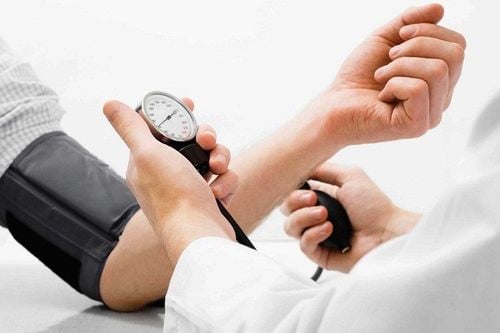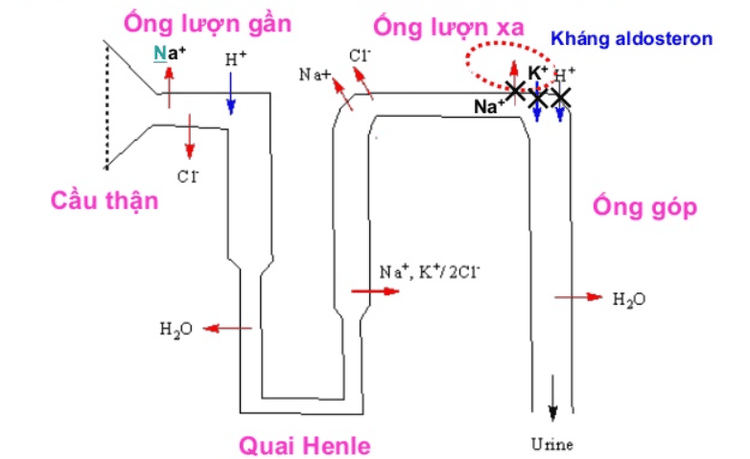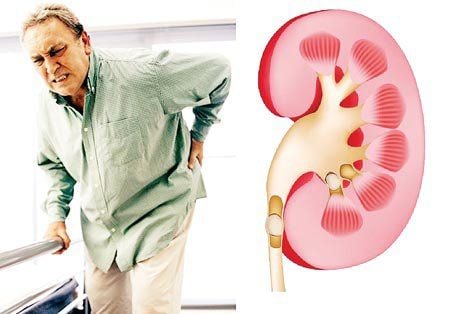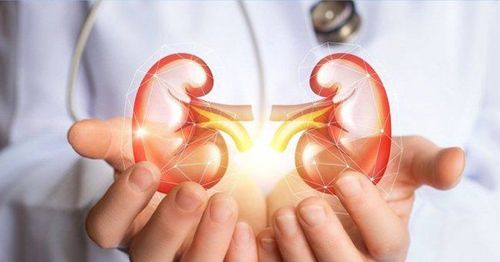This is an automatically translated article.
Diuretics are drugs that increase the excretion of salt and water in the kidneys, so the patient will urinate more. Diuretics are also often indicated in the treatment of renal failure, especially chronic renal failure.
1. Group of diuretics used in the treatment of kidney failure
Patients with chronic kidney disease, especially kidney failure, often suffer from fluid overload because the kidneys do not function well and do not perform well. Fluid overload and fluid retention due to kidney failure can cause many dangerous complications, the solution is to increase urine excretion with diuretics.
In patients without proteinuria, the preferred treatment regimen is still unclear, and diuretics such as thiazides, loop diuretics or aldosterone antagonists may be considered.
1.1. Thiazide diuretics
Thiazide diuretics for the treatment of kidney failure are commonly used such as bumetanide, furosemide, torsemide. The drug is used quite commonly, especially in patients with chronic renal failure stage 2 - 3 (glomerular filtration rate ≥ 30ml/min/1.72 m3).
Thiazide diuretics also increase uric acid in the blood, increase fluid excretion, and cause electrolyte imbalance. Common is hyperkalemia, hypomagnesaemia. Therefore, when using Thiazide for treatment, it is necessary to monitor the electrolyte balance regularly with electrolytes to detect electrolyte disturbances early. In addition, thiazide diuretics also help reduce the risk of hypertension and cardiovascular disease in patients with renal failure.
Thiazides are excreted by the kidneys, if the glomerular filtration rate is reduced to 30-50 ml/min/1.73m3, the diuretic effect is no longer present, only the antihypertensive effect remains.

Thuốc lợi tiểu nhóm thiazid làm giảm nguy cơ tăng huyết áp ở bệnh nhân suy thận
1.2. Loop diuretics
Loop diuretics include: Furosemide, bumetanide, furosemide, commonly used in the treatment of chronic kidney disease stage 4 - 5 (glomerular filtration rate <30 ml/min). Use of the drug is effective in reducing extracellular fluid volume in patients with severely reduced glomerular filtration rate.
Like thiazides, loop diuretics can also cause electrolyte imbalance, electrolyte monitoring is necessary for early detection if this occurs.
Use of loop diuretics in patients with renal failure, 1-2 times daily, the dose is very fluctuating and the pharmacokinetics are varied.
1.3 Aldosterone antagonists
Currently, aldosterone receptor antagonists (triamterene, spironolactone) are used in the treatment of chronic kidney disease if first- or second-line agents fail to achieve target blood pressure.
Aldosterone antagonists are potassium-sparing diuretics, so there is a risk of hyperkalemia. Patients treated for renal failure taking aldosterone antagonists should have their potassium levels checked regularly to detect electrolyte disturbances early.

Thuốc kháng aldosterone là dạng thuốc lợi tiểu giữ Kali
2. Be careful when using diuretics in the treatment of kidney failure
In the treatment of hypertension, diuretics with long-lasting and moderate sodium excretion are often used (usually thiazides).
Use of diuretics in the treatment of renal failure can cause orthostatic hypotension. Therefore, when initiating diuretic therapy, patients should be slowly moved from a sitting or lying position to a standing position.
In order to achieve a good treatment effect, to avoid unwanted effects, the patient should absolutely adhere to the medication regimen prescribed by the doctor.
In addition, the patient should not arbitrarily quit or use the wrong course of treatment. If you experience unwanted side effects, you should notify your doctor for treatment and alternative medicine.
Besides, treatment of kidney failure with diuretics is a long course of treatment, it is necessary to avoid drug interactions that can reduce the effectiveness of treatment. Patients should note that while taking diuretics, do not arbitrarily use other drugs without consulting the treating doctor. If you are taking other medications, you must inform your doctor to prescribe the appropriate medication.
Any questions that need to be answered by a specialist doctor as well as customers wishing to examine and treat at Vinmec International General Hospital, you can contact Vinmec Health System nationwide or register online HERE.
MORE
What are diuretics? Use it correctly? Side effects of diuretics Diuretics in the treatment of hypertension













